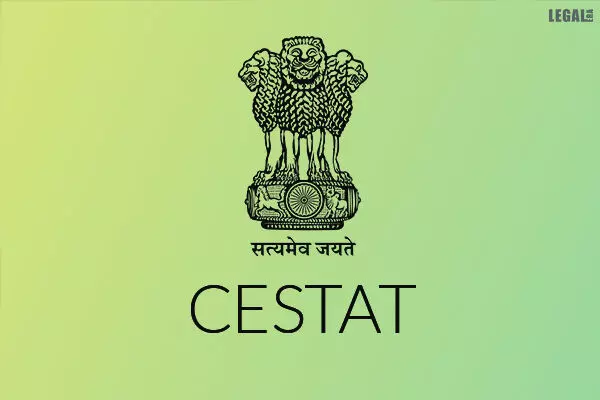- Home
- News
- Articles+
- Aerospace
- AI
- Agriculture
- Alternate Dispute Resolution
- Arbitration & Mediation
- Banking and Finance
- Bankruptcy
- Book Review
- Bribery & Corruption
- Commercial Litigation
- Competition Law
- Conference Reports
- Consumer Products
- Contract
- Corporate Governance
- Corporate Law
- Covid-19
- Cryptocurrency
- Cybersecurity
- Data Protection
- Defence
- Digital Economy
- E-commerce
- Employment Law
- Energy and Natural Resources
- Entertainment and Sports Law
- Environmental Law
- ESG
- FDI
- Food and Beverage
- Gaming
- Health Care
- IBC Diaries
- In Focus
- Inclusion & Diversity
- Insurance Law
- Intellectual Property
- International Law
- IP & Tech Era
- Know the Law
- Labour Laws
- Law & Policy and Regulation
- Litigation
- Litigation Funding
- Manufacturing
- Mergers & Acquisitions
- NFTs
- Privacy
- Private Equity
- Project Finance
- Real Estate
- Risk and Compliance
- Student Corner
- Take On Board
- Tax
- Technology Media and Telecom
- Tributes
- Viewpoint
- Zoom In
- Law Firms
- In-House
- Rankings
- E-Magazine
- Legal Era TV
- Events
- News
- Articles
- Aerospace
- AI
- Agriculture
- Alternate Dispute Resolution
- Arbitration & Mediation
- Banking and Finance
- Bankruptcy
- Book Review
- Bribery & Corruption
- Commercial Litigation
- Competition Law
- Conference Reports
- Consumer Products
- Contract
- Corporate Governance
- Corporate Law
- Covid-19
- Cryptocurrency
- Cybersecurity
- Data Protection
- Defence
- Digital Economy
- E-commerce
- Employment Law
- Energy and Natural Resources
- Entertainment and Sports Law
- Environmental Law
- ESG
- FDI
- Food and Beverage
- Gaming
- Health Care
- IBC Diaries
- In Focus
- Inclusion & Diversity
- Insurance Law
- Intellectual Property
- International Law
- IP & Tech Era
- Know the Law
- Labour Laws
- Law & Policy and Regulation
- Litigation
- Litigation Funding
- Manufacturing
- Mergers & Acquisitions
- NFTs
- Privacy
- Private Equity
- Project Finance
- Real Estate
- Risk and Compliance
- Student Corner
- Take On Board
- Tax
- Technology Media and Telecom
- Tributes
- Viewpoint
- Zoom In
- Law Firms
- In-House
- Rankings
- E-Magazine
- Legal Era TV
- Events
CESTAT: Service Tax Demand cannot be based on recorded Statement

CESTAT: Service Tax Demand cannot be based on recorded Statement
As a result of quashing a service tax demand, the CESTAT Ahmedabad bench has held that the demand cannot be exclusively based on a statement made under section 132 of the Income Tax Act, 1961.
Builders are the appellants. DGGI received the documents containing Excel Worksheets from the income tax authorities that were seized during the income tax search of the computer. For the period from 01.04.2014 to 30.06.2017, the DGGI initiated proceedings against the appellants for the recovery of service tax of Rs. 13,79,41,328/- in respect of taxable services "Construction of Residential Complex Services/ Construction of Commercial Complex Services" and service tax of Rs. 2,98,55,000/- in respect of Work Contract Services. As a result, demand notices along with penalties were served on the appellants and directors.
According to the appellants, the department only relies on the investigation conducted by the Income Tax authorities and the notice that was issued by the Income Tax authorities.
Mr. Ramesh Nair, a member of the Judiciary and Mr. Raju, a member of the Technical Committee, stated that the demand for service tax based on documents/information/data provided by the Income Tax authorities is not legal. In the absence of independent inquiry, the documents relied upon lose their evidentiary value.
Following the appellants' arguments, the Tribunal held that "we agree with Ld. Counsel that the above provision explicitly indicates that the evidence value of the statement recorded under Section 132 of the Income Tax Act is limited and restricted to income tax purposes and that it cannot be used or relied upon in other contexts."
In the present case, we also find that the Revenue has raised the service tax demand solely as a result of an investigation conducted by the Income Tax Authorities. As we find, a demand cannot be raised merely on the basis of an assessment made by the Income Tax Authorities," the Tribunal stated.


